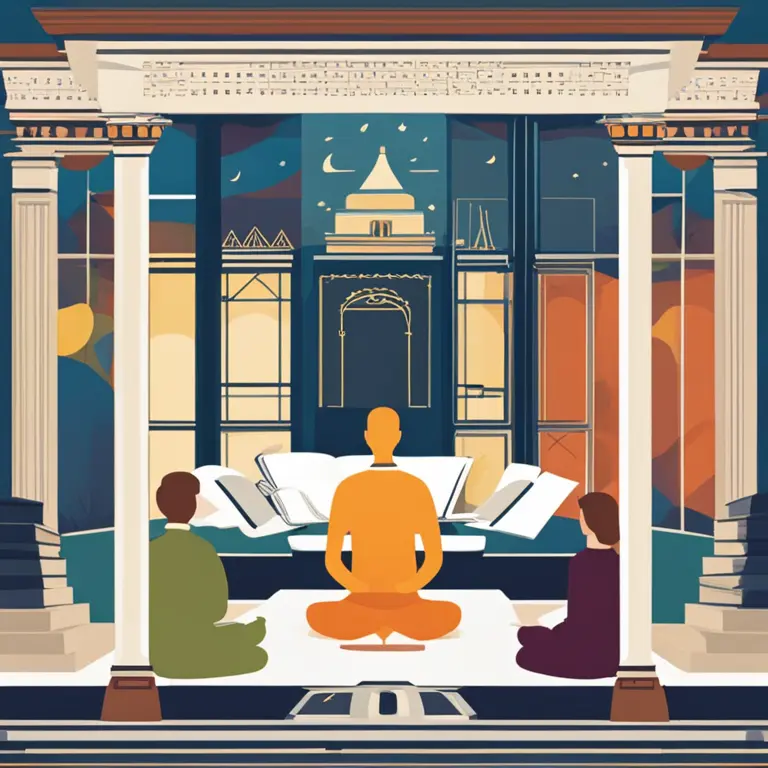
The Vital Role of Meditation for Student Well-being
Discover the transformative benefits of meditation in enhancing students' focus, reducing stress, and fostering overall academic and personal growth.
article by Hina Kurosawa
Enhancing Concentration and Focus
Meditation is no longer a fringe or esoteric practice reserved for monks and mystics; it has become a scientifically-backed tool for health and well-being. For students, who often face immense pressures and distractions, meditation offers a much-needed sanctuary for the mind. Various studies have shown that meditation can significantly increase the attention span and focus, which are crucial for absorbing new information and excelling academically. As education systems evolve to inculcate skills essential for the 21st century, such as critical thinking and problem solving, the ability to concentrate becomes ever more valuable. Meditation equips students with the mental clarity needed to navigate complex concepts and retain voluminous data, paving the way to academic success.

Stress Reduction and Emotional Regulation
In an era where the mental health of students is a growing concern, meditation serves as a natural and effective stress-reliever. It encourages a state of relaxation that counters the body's stress response, often marked by anxiety, depression, or burnout – common issues in the student population. Regular meditation practice helps in regulating emotions, fostering resilience in the face of academic or social pressures. By teaching students to observe their thoughts without judgment, meditation can lead to a more balanced perspective on life’s challenges, creating a generation of individuals better equipped to handle the ups and downs of their educational journey.

Boosting Memory and Cognitive Skills
Memory enhancement is another scientific feather in the cap of meditation. Neuroplasticity, the brain's ability to form new connections and pathways, is positively influenced by meditation practices. This adaptability is particularly beneficial for students, who are in the thick of learning and memorizing new material daily. Meditation not only helps in consolidating memory but also improves cognitive functions, leading to better problem-solving skills and creativity. As the educational landscape becomes increasingly dynamic, students with sharper cognitive abilities and enhanced memory stand well-poised to thrive in multifaceted learning environments.

Improving Sleep Quality
Quality sleep is indispensable for academic excellence. Sadly, sleep issues have become more prevalent among students, hampering their ability to perform optimally. Meditation has been found to improve sleep patterns, making it easier to fall and stay asleep. A well-rested mind is essential for learning, processing information, and maintaining overall health. By integrating meditation into their routines, students can create a virtuous cycle of rest and rejuvenation, supporting their educational endeavors and personal well-being.

Building a Mindful Future
The lessons learned from meditation extend beyond the immediate benefits. They cultivate a mindset of mindfulness that can influence a student's approach to life and learning. This awareness can lead to healthier choices, from diet and exercise to managing time and interpersonal relationships. As mindfulness becomes a part of a student's toolkit, they are better equipped to contribute to a conscious and empathetic society, making meditation more than a personal practice but a societal benefit.
Embracing Meditation in Education Policy
Recognizing the overarching benefits of meditation, educational institutions and policymakers are increasingly advocating for its inclusion in curricula. Beyond individual practice, schools and universities are creating spaces and allocating times for meditation. This integration of mindfulness practice into the daily lives of students is becoming a marker of progressive education systems passionate about holistic development.
Published: 1/14/2024
Modified: 1/15/2024
More predictions
Come back here soon to learn more about yourself and your future


Calming the Storm: Mindfulness Meditation for Anger
Discover how mindfulness meditation can be a powerful tool for anger management, promoting inner peace and emotional balance.


Healing Through Mindfulness: Meditation & Trauma Recovery
Mindfulness meditation offers a powerful tool for individuals seeking solace and healing from traumatic experiences. Discover how this practice can aid in the journey towards inner peace.


Easing Loneliness with Meditation
Discover how mindfulness meditation can provide solace and connection to mitigate feelings of loneliness, enhancing emotional and mental well-being.